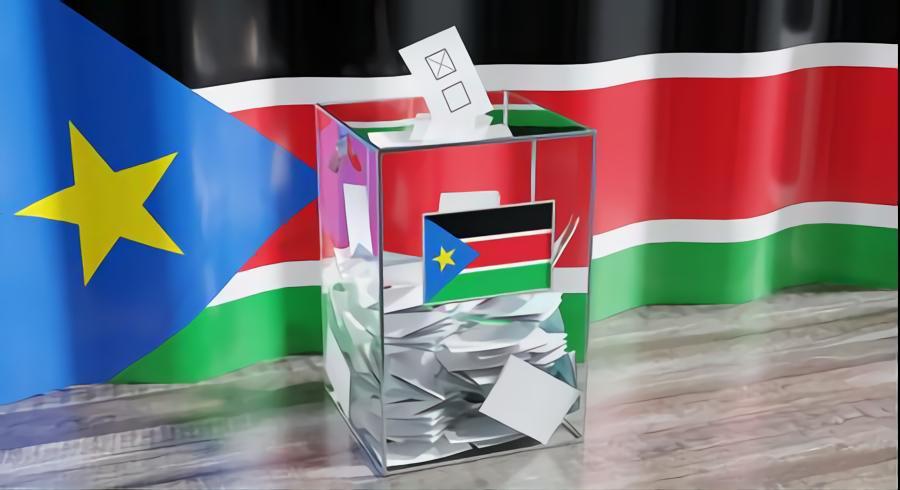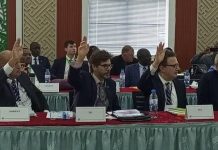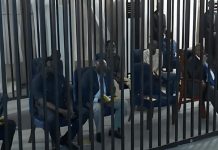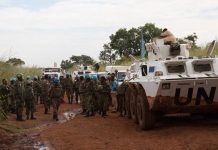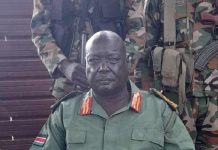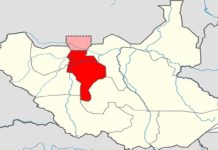Africa-Press – South-Sudan. President Salva Kiir’s announcement that South Sudan’s general elections will be held in 2023 continues to be cited with highlights that other members of the presidency and the parties to the R-ARCSS are yet to agree on an electoral timetable.
Concerns have been expressed about the technicalities in the R-ARCSS that allow for free, fair, and credible elections, and this year there is a need for more concurrent activities across all chapters of the agreement. What also needs more focus is the links between the transitional justice mechanisms in the R-ARCSS and the success of the general elections provided for in the agreement.
In his new year’s message, President Kiir said the government will be embarking on the process of establishing the Commission for Truth, Reconciliation, and Healing (CTRH) by the end of this month.
“It is important to initiate this process so that our people can know the truth about what took place during the war and use it as the basis for peacebuilding, reconciliation, and social stability,” he said.
At the “Conference on Sustaining Momentum for Transitional Justice in South Sudan, held virtually and in Nairobi, key stakeholders in the transitional justice process in South Sudan adopted a “joint strategy and plan of action to accelerate the implementation of existing commitments under the 2018 Revitalised Peace Agreement.”
The Conference was initiated by the United Nations Commission on Human Rights in South Sudan, the commission mandated by the UN Human Rights Council to monitor the human rights situation in South Sudan and to support the implementation of its transitional justice program.
Participants included representatives of the Revitalised Transitional Government of National Unity of the Republic of South Sudan; the Transitional Justice Working Group representing civil society and victims’ groups; the Reconstituted Joint Monitoring and Evaluation Commission, and delegates of the African Union and the UN system.
Yasmin Sooka, the chairperson of the Commission on Human Rights in South Sudan, opened the Conference by identifying the centrality of transitional justice processes to peace and nation-building, stating that: “Transitional justice is about truth recovery, accountability, reparations for survivors, and institutional reform. If done well, this has the potential to restore the trust of South Sudanese people in the state and to signal the government’s commitment to work for all its people, irrespective of ethnic identity.”
“A core theme throughout presentations and discussions was the need to restore the fabric of South Sudanese society by building a culture of accountability in the country. Participants emphasised the need to create an enabling environment for meaningful dialogue and the participation of the public and victims in justice processes, by expanding and guaranteeing civic space, and paying attention to witness protection and security, among other things,” a publication by the UN Human Rights Council about the conference reads.
“Other key needs discussed were for: the country’s diversity to be reflected in each step of all processes; adequate funding and resources to be allocated for implementation prioritising institutional and constitutional reform; prioritisation of reparations; strengthening of domestic justice systems, including military justice mechanisms; harnessing the contribution of traditional justice; engaging with actors who are not a party to current peace and political arrangements, including military and security actors; and better coordination between the AU and government.” A report with further details will be published in early 2022, the publication says.
An important observation made by Beny Gideon Mabor, Esq, Commissioner, South Sudan Human Rights Commission, is the need for a clear line of communication and engagement strategy between the Revitalised Transitional Government of National Unity and the African Union organs to achieve the implementation of transitional justice.
The government and the African Union did not move forward with the establishment of the Hybrid Court, in of the Transitional Justice Mechanisms provided for in the ARCSS of 2015, and relating to that, came last year’s report that the U.S. State Department “signalled it is planning to reallocate most of the $5 million in funding it had earmarked for the court, sending some back to the U.S. Treasury and another portion to other programs in South Sudan.”
“The decision to take back the money reflects mounting frustration with South Sudanese President Kiir Salva Kiir Mayardit, who recently claimed the court is unnecessary, as well as with his chief rival, Vice President Riek Machar,” the report by Foreign Policy says, “But it also reflects a certain exasperation with the African Union (AU), which played a critical role in advocating for a regional tribunal to be staffed by AU and South Sudanese lawyers and judges. The AU- which has the authority to set up the court- has been reluctant to move ahead without buy-in from South Sudanese parties.”
The Hybrid Court for South Sudan shall be established by the African Union Commission to investigate and where necessary prosecute individuals bearing responsibility for violations of international law and/or applicable South Sudanese law, committed from December 15, 2013, through the end of the Transitional Period. The R-ARCSS says the Hybrid Court shall have jurisdiction with respect to the following crimes: 1- Genocide; 2-Crimes Against Humanity; 3-War Crimes Other serious crimes under international law and relevant laws of the Republic of South Sudan including gender-based crimes and sexual violence.
One issue is the introduction in the R-ARCSS of the words “where necessary” which did not exist in the ARCSS and has now left it vague on how that necessity shall be determined and by who.
However, the need to establish the Hybrid Court together with the rest of the Transitional Justice Mechanisms continues to be expressed by many South Sudanese.
Roger Alfred Yoron Modi, a South Sudanese journalist, is the author of the book Freedom of Expression and Media Laws in South Sudan. He is also the Producer and Host of The Weekly Review: Making Sense of Relevant Topics and News. For more, keep in touch with his website
rogeryoronmodi.com DISCLAIMER: All comments and opinions appearing on this website are those of the authors and do not represent the editorial view of The City Review Newspaper.
For More News And Analysis About South-Sudan Follow Africa-Press

